We arrived around noon at Unidad Cooperaria No. 1, in the town of Cololó, department of Soriano, about 300 kilometers west of the capital. As soon as we got out of the van, we were met with a suspicious heat that foretold a storm—and a swarm of teenagers. Las Gurisas—Lucía, Mariana, Lucía, and Laura—were fully engaged in wrapping up the final tasks of an agricultural training program for youth, which was nearing its conclusion.
Amid the buzz of activity, we began to organize ourselves: we unloaded our gear and prepared lunch. Once everything was ready, we went off to talk under the shelter of the trees.
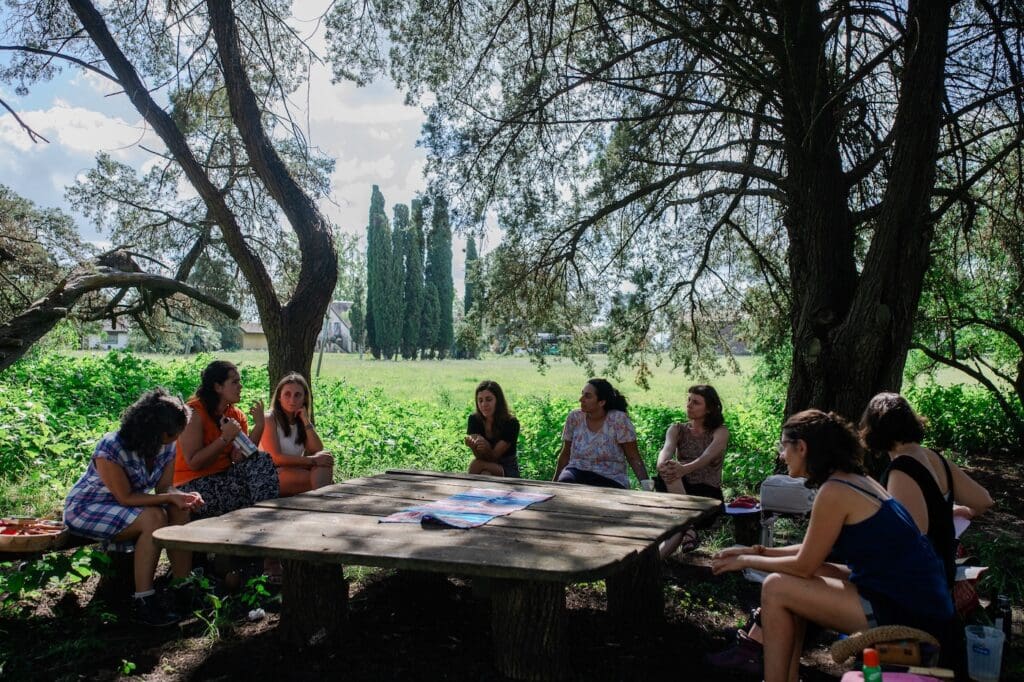
The cool breeze gave us a break and invited us to listen. There, we took time to introduce ourselves—both personally and collectively.
Getting to know Las Gurisas is like opening a matryoshka doll, one of those charming Russian nesting dolls with figures inside figures. As a collective, they emerged in 2018 when they began dreaming of a shared, vital, and productive project that would reconnect them with rural life. At that time, they were all university students in Montevideo, each from working-class families in different parts of the country. Living together day-to-day and building affection in their shared routines opened the door to imagining new ways of living.
Two years later, their dream took root: Las Gurisas arrived on the land to cultivate agroecological fruits and vegetables—and to live and participate, as an organization, in the collective life of the Colonia Instrucciones del Año XIII, part of Uruguay’s National Colonization Institute (a state agency that facilitates access to land for rural development). On this 2,228-hectare plot, expropriated by the Uruguayan state, Unidad Cooperaria No. 1 was established in 1953 to promote cooperative values in agricultural production. It’s a land rich in history, whose most memorable event was hosting, in 1969, a massive youth congress that proposed a comprehensive agrarian reform for Uruguay.
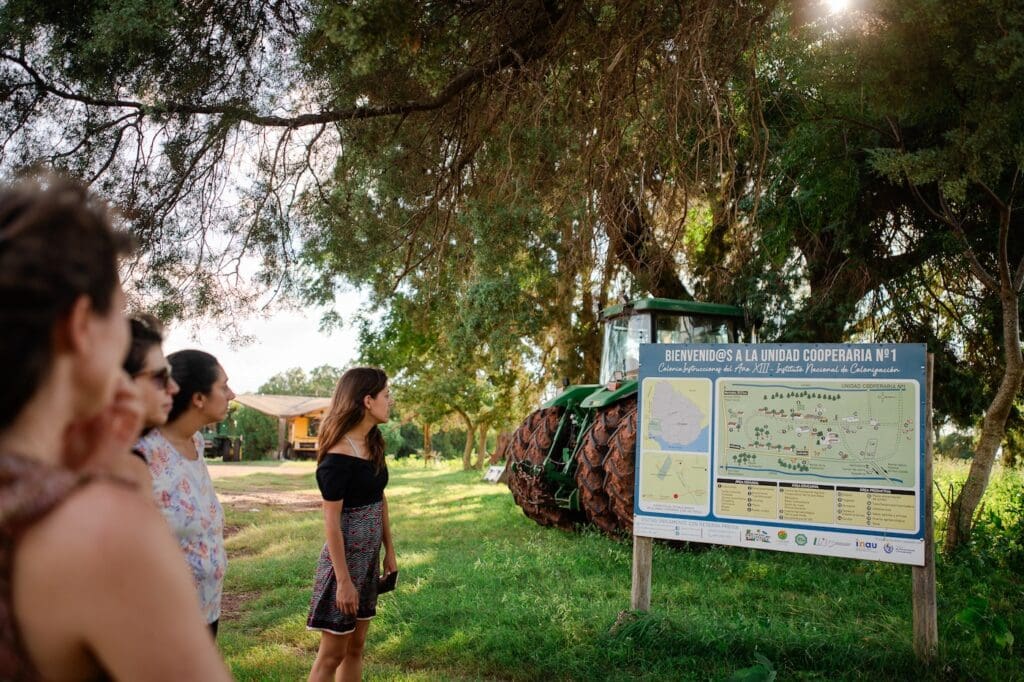
Seventy years later—with ups and downs, coming and going—the land is now home to several initiatives: Unidad Cooperaria No. 1, made up of families dedicated to cooperative farming; La Cooperaria, a rural tourism venture; the Tierra que anda cooperative, which offers agricultural training to youth from vulnerable backgrounds; and the agroecological collective Las Gurisas.
We came to understand this landscape by walking the land with them—visiting the shared spaces, the plaza, the school, the communal kitchen. We toured their garden and eventually gathered in the community hall for the workshop.
There, we returned to the heart of Las Gurisas—their paths to the land, their communal way of life, and their concern for fair division of the labor that sustains life and the relationships that nourish us within a system that undermines them.
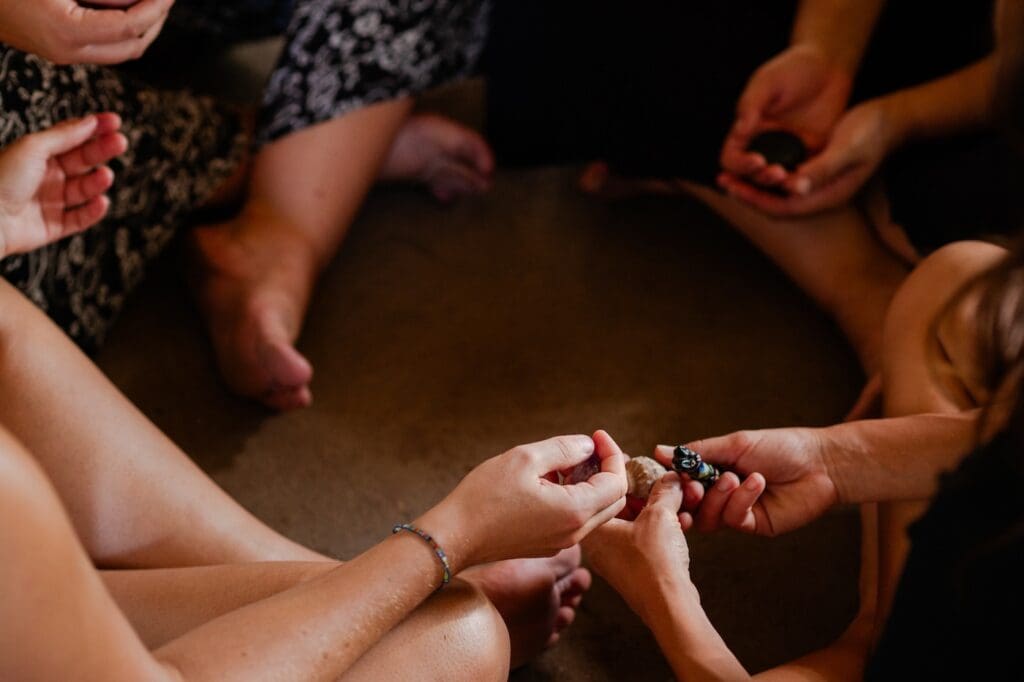
Their words and gestures honored their ancestry, their bond with the land, and food production—being “daughters of family farming.” But they also spoke of a search: the desire to weave themselves into multiple spaces and networks where the way of life they dream of might resonate and take root collectively.
The process of mapping their bodies opened new doors for dialogue. It revealed what is both complex and delicate: the violences of agribusiness and patriarchy that affect their bodies. Skin rashes and respiratory issues from pesticide spraying hurt just as much as the practices that delegitimize the skill and knowledge of four rural women.
The lump in the throat, the rising emotion, the hands that embrace, the tender words that hold. These gestures speak of a sensitivity cultivated through shared experience. A deep conviction runs through their bodies and lives: to be and to act with care. Caring for the land, for collective processes, for others, and for themselves. Care, then, becomes a form of resistance, of sowing, of future-building.
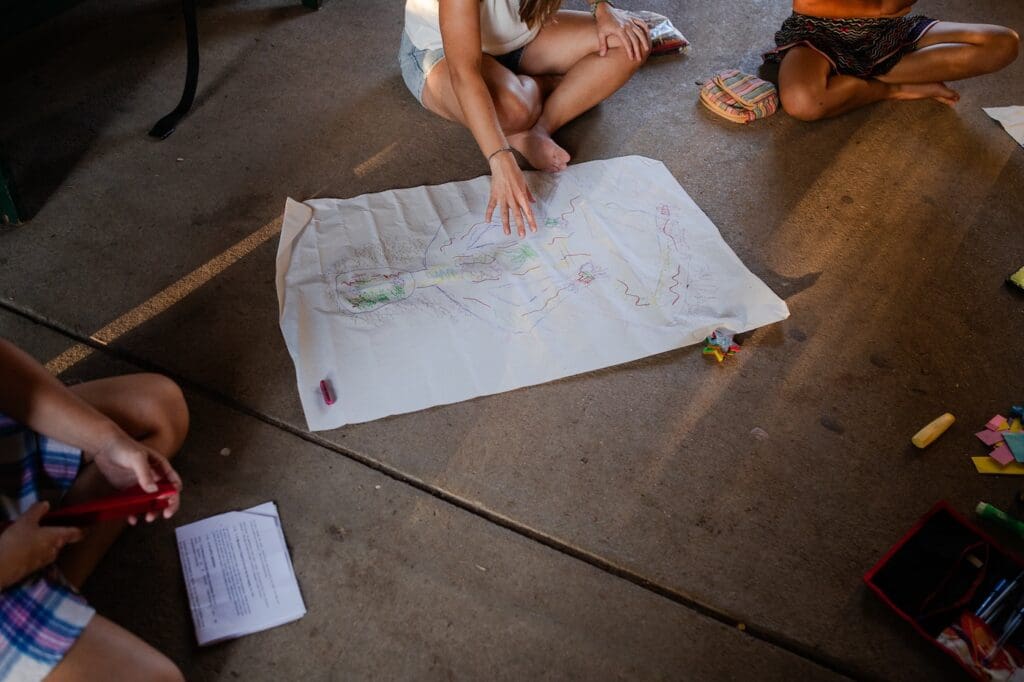
By nightfall, we wrapped up the workshop. Wrapped up is just a figure of speech—dinner and long, warm conversations still awaited us, that extended time where sharing continues.
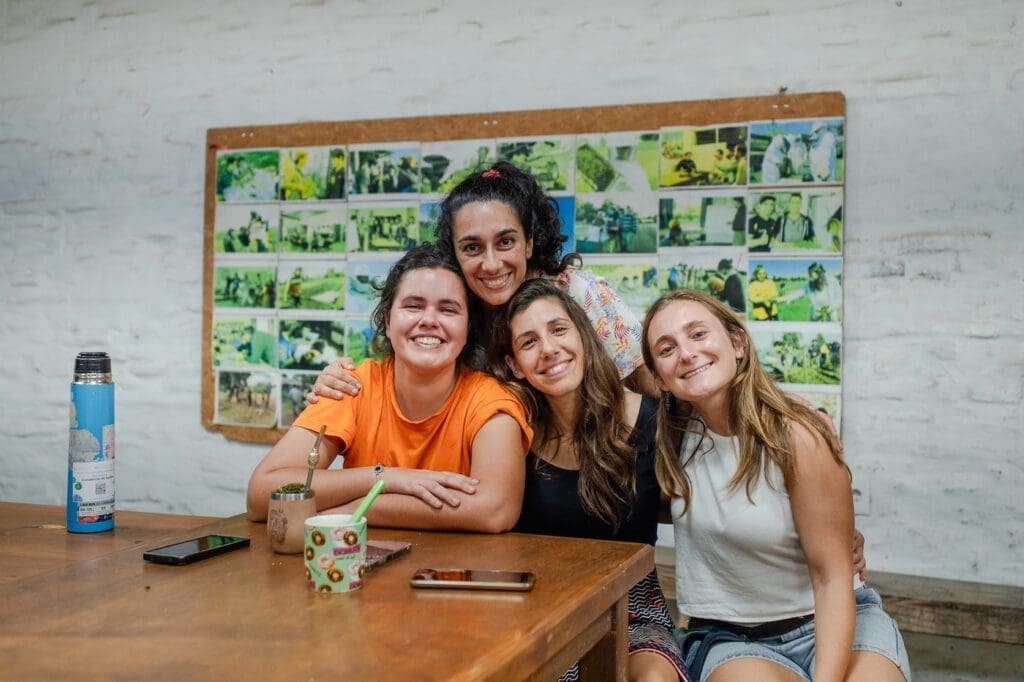
View all photos: https://valrodlez25.pixieset.com/lasgurisas/
About The Authors
We are Lorena Rodríguez Lezica, Gabriela Veras Iglesias, Nat Tommasino Comeseña, and Alicia Migliaro González, from Uruguay, and this work has been carried out in dialogue with the collective Critical Views of Territory from Feminism. The four of us in Uruguay have been walking together through university outreach and as social activists. In this project, we come together to support four different community experiences in various regions of Uruguay.
This narrative is a collective creation of Lorena, Gabriela, Nat and Alicia, who organized the meetings and workshops within the framework of ORA.



